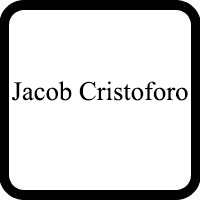Prescott RICO Act Lawyer, Michigan
Sponsored Law Firm
-
 x
x

Click For More Info:
-
Jacob A. Cristoforo PLLC
P.O. Box 146 Kawkawlin, MI 48631» view mapCriminal Defense Fighting For Your Rights
If you are looking to hire a lawyer in Michigan, Jacob Cristoforo will be happy to help you. Attorney Cristoforo specializes in Criminal Defense.
800-892-7670
Not enough matches for Prescott RICO Act lawyer.
Below are all Prescott Criminal lawyers.
Jacob Anthony Cristoforo
✓ VERIFIEDCriminal, Divorce & Family Law, Litigation, Traffic, Misdemeanor
Jacob Cristoforo is a practicing attorney in the state of Michigan.
Scott M. Williams
Criminal, Family Law, Estate Planning, Estate
Status: In Good Standing Licensed: 30 Years
 Jacob Cristoforo Kawkawlin, MI
Jacob Cristoforo Kawkawlin, MI Practice AreasExpertise
Practice AreasExpertise

